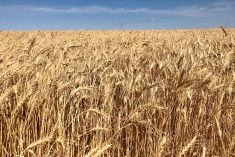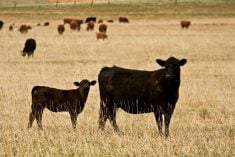Nov. 5 (Reuters) – India has raised the support price of chickpea, the main pulse, by 7.9 percent to 3,425 rupees per 100 kilograms to stimulate more seeded acres for the winter crop.
On top of that, the government has added a further 75 rupee per 100 kilogam bonus, raising the chickpea support price to 3,500
That is the equivalent of about C$69.90 per 100 kilograms or about 32 cents per pound.
Winter crop planting starts in October, with harvests from March.
Pulse prices in India have soared because of weather problems in their own crop. It is expected to increase the amount of pulses imported from Canada and elsewhere this year.
Read Also

U.S. grains: Soybean futures inch higher on China trade optimism
U.S. soybean futures firmed on Wednesday as traders remained hopeful for progress in trade talks with top soy buyer China and on a Japanese proposal to increase U.S. soy purchases, deals that could help U.S. farmers avert major losses.
The government has also said it would ask state-run agencies to procure oilseeds and pulses in an attempt to protect farmers from distress sale.
The government also raised the amount it will pay to buy new-season wheat from local farmers to 1,525 rupees per 100 kg, up from 1,450 rupees in 2015, Power Minister Piyush Goyal said. That would work out to about C$305 a tonne.
The government buys rice and wheat from local growers to build a buffer for any emergency and to run its mammoth food welfare progams.
The government also raised the purchase price of rapeseed, the main winter oilseed, to 3,350 rupees per 100 kg against 3,100 rupees last year, Goyal told reporters on Thursday.
That would work out to about C$669 per tonne













